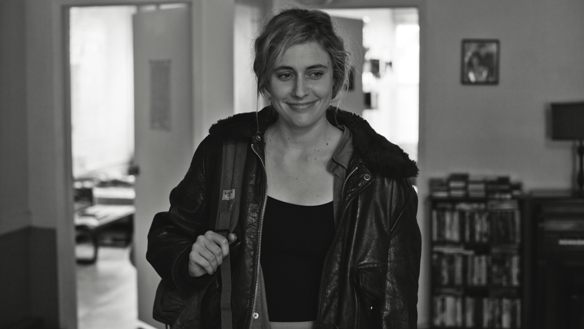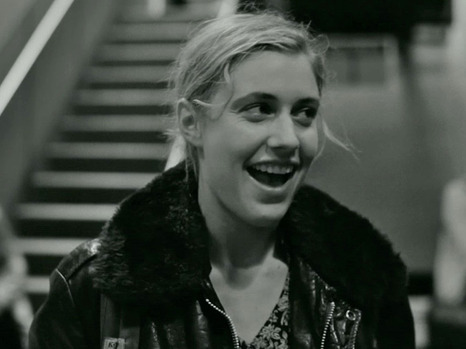A while ago, I read something that summed up the existential malaise of Generation Y in one helpful equation:
Happiness = Reality – Expectations.
To put it differently: My parents, born in the 40s, didn’t hope for much more than the opportunity to go to college and from there build a secure and modest life. Everything after that was gravy. When they asked me what I wanted to be when I grew up, I used to answer quite honestly that I would like to be an astronaut but failing that, would settle with being an engineer. Both times, there was a good chance that reality would outstrip expectations, so the Happiness factor for our generations registered as a positive.

But take poor Generation Y. They’ve been peppered with messages since the cradle about being whatever they want to be, doing whatever they want to do: Dancer, Director, President of the United States of America. Generation Y were brought up on the premise that there would always continue to be an upward swing in the Gross Happiness Product. However, this sunny optimism forgot something: the rueful truth that at some point, High Expectations would outstrip the grim matter-of-factness of Reality. Generation Y, unfortunately were misled when they were told that They Could Have It All.
All this is a roundabout way of saying that Frances Ha, the new film by writer/director Noah Baumbach captures, in painfully lucid fashion, the malaise of the present age. It’s quite an impressive achievement: Baumbach, born in 1969, is very good at plumbing the depths of generational angst, but usually from within his own social and chronological milieu. (The Squid and The Whale, which earned him a scriptwriting Oscar nod in 2006, is loosely based on his own experiences as a teenager; the underrated ennui of Greenberg is very much a Generation X – albeit a rather privileged Generation X – statement.)

The story runs thus: Frances is 27, a dancer, flat-sharing in New York with Sophie, her best friend from college who works in publishing. Social life is a frenetic whirl; in moments of quiescence, she and Sophie lie in bed and dream about when Frances becomes a renown dancer and Sophie commissions a huge tome about her life and influences. Life is good, it seems.
Except that it’s not. Frances is an apprentice at her dance company with little chance of making it onto the main roster; Sophie is about to move out and move in with her boyfriend, who does strange but richly remunerative things in the banking world. Frances splits up with her boyfriend over nothing; she has no money. Benjy, her new flatmate – who is writing a sequel to Gremlins (of all things!) – describes her as “undateable.” And he means it in a kind way. Frances, it’s fair to say, is in a bit of a mess.
Noah Baumbach says he chose to shoot Frances Ha in black and white because he wanted to boil the story “down to its barest bones,” giving it a sense of “immediate nostalgia.” It works, albeit in curious fashion. The camera work – shot on digital, with a naturalistic vibe, but often over multiple takes – has moments of rawness that bring Truffant to mind, particularly Jules et Jim. But because Frances and her milieu are so very much of the moment, it creates a strange sensibility. Like watching your life on the Biography Channel, I think. The unsubtle cinematography prompts us to pay close attention to the script, which is a good thing. It is sharp and funny, the whimsy that meanders through the film balanced off by corrective moments of acute social embarrassment.

But it is Greta Gerwig’s performance as Frances that makes the real difference between interesting observational piece, and literate intelligent filmmaking. Gerwig – who co-wrote the script – has a curious physical presence, all flailing arms and physical gawkiness. She falls over, leaves her room in a state of perpetual untidiness, misreads cues and body language. She doesn’t really fit in, and because she tries so hard she makes matters even worse. But all this is played off against her facial language, which thanks to the monochrome medium is – as Baumbach proposes – stripped down to a minimum. She radiates eternal optimism, an openness stripped free of guile. Charlie Chaplin would be proud, I think.
Mind you, mindless optimism is not always the best solution for a problem like Frances. Matters turn from bad to worse, in no small part because she cannot permit herself to see her life for what it is. It is important to keep things in perspective: when she laments that she is poor, Benjy points out that she can’t be “poor” because she is educated, art-minded and white. It comes down to a matter of expectations versus reality, and her expectations are taking a real beating. After a disastrous dinner party, she impulsively flies to Paris for the weekend – what are credit cards for if not for maxing out on a whim? – to prove to herself that she can have the life she believes she ought to have, filled with fun and gaiety and spontaneity and creativity. The trip is a disaster, of course; that’s the real tragedy. Later, she’s offered an administrative job in her dance company, to tide her over whilst she works out her next professional steps. But she turns it down because it’s a step back. She doesn’t want to be the failure in the Having It All age.
If I were to reduce Frances Ha down to a single concept, I think I would go with the notion of understanding social capital. There are very subtle but rather telling clues scattered about the film that give us – if not Frances – some understanding about why things aren’t working out. Frances Ha is rooted in a privileged, middle class setting, but Frances is not all of these things. She has the language and the props and the colour to fit in, but only up to a point. What she lacks the social safety net needed to negotiate the tangled world of misplaced expectations and unwanted reality. It’s not very nice to say, but Frances Ha reinforces the uncomfortable truth that to have a full life in our self-regarding and consumeristic age, it helps if you are (1) At least slightly narcissistic and (2) Rich.
Frances Ha is a film about the travails of a lost generation; but it is more importantly a film about social privilege, or the lack of therein. Once one gets this point, it becomes very easy to cheer for Frances, hope that she learns to play the game on her own terms. She is a bit of a klutz, but she is well meaning and honest and just needs to teach herself to be true to herself. Setting one’s expectations a bit lower is not necessarily the same as selling oneself short. Rather it’s acknowledgement of lack of true access to the resources and connections, oft invisible, that one only commands when one belongs within a milieu. It isn’t terribly fair: but then, as lots of 20-somethings and 30-somethings have come to find out, who said life was supposed to be fair?
(Oh, if you are interested, you can find the article I mentioned at the beginning of this piece here. )
Frances Ha (20120
Directed by Noah Baumbach, Written by Noah Baumbach and Greta Gerwig
Starring Greta Gerwig, Mickey Sumner, Michael Esper, Adam Driver
86 mins, English w. Hebrew subtitles





